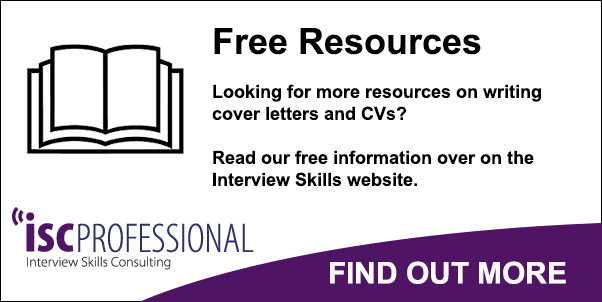Features and Layout of a Winning CV
A recruitment exercise is a bit like a race- you want to be the one to get across the line first. Achieving this objective will require you to hone every aspect of your personal sales process, starting with that key foundational document- the CV.
Having a carefully constructed and crafted CV is a must do for any prospective employee- but where should you start? Here are the key ingredients for a race ready CV which will speed you towards a successful interview.

The Right Style
Take time to work on the layout and presentation of your CV. Employers often receive thousands of CVs and so in the sifting process you want yours to stand out from the crowd but for all the right reasons. Your CV should look appealing but also business-like- this is not the place for clip art or emojis! You want to be taken seriously so ensure that your personal sales document (which is what a CV really is) conveys this message. There are of course always exceptions to this rule (for instance if you are applying for a theatrical or comedy role) but in reality these are few and far between.
The Right Layout
Choose a layout which is easy to follow, with detailed information broken up into short paragraphs and bullet points. Use a consistent font and approach to formatting throughout, and make absolutely sure there are no grammatical or spelling errors.
The Right Content
Think long and hard about what you want to put into your CV and make it relevant to the particular role you have in mind. This doesn’t’t mean you should omit significant chunks of your career or educational history (gaps are a no-no) but each version of your CV should have a slightly different emphasis depending on the nature of the job you want to be considered for.
The Right Information
Be upfront with the most important information – this is your sales pitch so make it strong to ensure you get that interview. This will attract the employer and encourage them to read on. Include a personal statement which should be tailored to each specific job and matches your skills and qualifications with those required by the employer. Provide a full account of your education and employment history, highlighting any technical skills which are of particular relevance. Give an insight into your personal interests too- this lets the employer see you are a well rounded candidate and individual. Finish off with high quality references- essential in today’s employment market.
Give an insight into your personal interests too- this lets the employer see you are a well-rounded candidate and individual. Finish off with high-quality references- essential in today’s employment market.
The Right Length
In CV writing balance is important when it comes to the length of the document. Be concise but don’t overdo the brevity- this may create the impression that you lack experience or worse still are attempting to conceal something. Equally damaging is the over lengthy CV. Creating a ‘War and Peace’ type CV is off-putting to busy recruiters, who may also think you are incapable of expressing yourself succinctly.
Ideally the complete document should not exceed two pages. Obviously if the employer has stipulated a one page CV (as is sometimes the case) then you should stick to that. Otherwise it is often better to run to two pages rather than try to cram everything onto one. Your initial draft may be longer but that’s ok as it gives you scope to edit it down to the correct length. Review and rewrite until you have eliminated unnecessary information and produced a document which is as close to perfect as you can make it.
Read more in our free information guide on how to create a winning CV.





